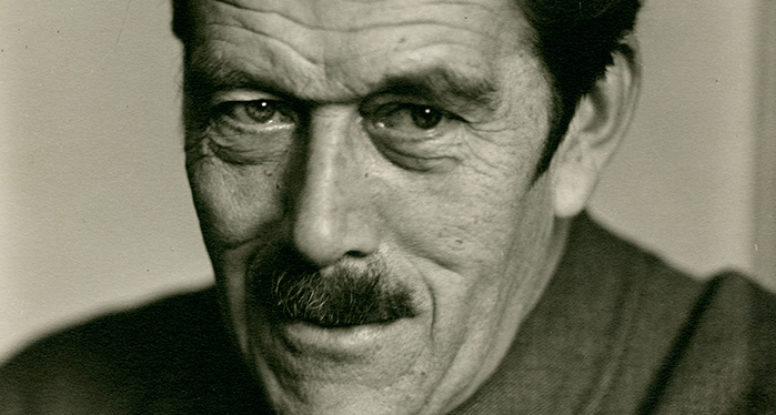
Olof Thunman
1879-1944.
Artist, writer.
Olof Thunman was born in the Imperfectum student house on Västra Ågatan, where the St. Lars Catholic parish is now located.
He studied at the Academy of Fine Arts and its etching school between 1902 and 1906. Thereafter, Thunman devoted himself to landscape painting, which, like his poetry, is based on the cultural landscape of Uppland. Thunman painted in an impressionistic style, often with twilight tones, but later switched to topographically precise drawings and washes.
In 1928, he moved to the gatehouse at Noor's castle in Knivsta and lived there for the rest of his life. Thunman often went out into the countryside, on foot or by bicycle, with pen and paper in hand. He often wore a gray wadding suit with leg wraps, and as such is depicted in a sculpture outside Särsta Inn in Knivsta.
The poetry is collected in books such as Pan Spelar (1919), Olandssånger (1927) and Fornbygd och färdvägar (1929). The most famous poem is "Vi gå över daggstänkta berg" to a melody of uncertain origin, possibly from a Hälsingemeelodi.
In October 1944, Olof Thunman died and after the burial ceremony on October 28 in Uppsala Cathedral, the funeral procession went through Odinslund past Carolina, via Övre Slottsgatan into Åsgrändsgrinden. The procession was lined by a crowd of thousands, who with torches honored the deceased.
After the coffin was lowered into the grave, a double quartet from OD sang "Over the forest, over the lake" with text and music by composer A.F. Lindblad.
The following stanza is taken from the poem "Winter Night", Olandssånger, 1927.
There is snow over Fågelsången
And the case sleeps at the Iceland Bridge.
In the night, a winter prisoner listens
In vain for a spring tone.
Burial site: 0115-0801
Image description: Olof Thunman ca 1940. Photo: Gunnar Sundgren / UUBThe image is cropped]
Click here for an uncropped image
